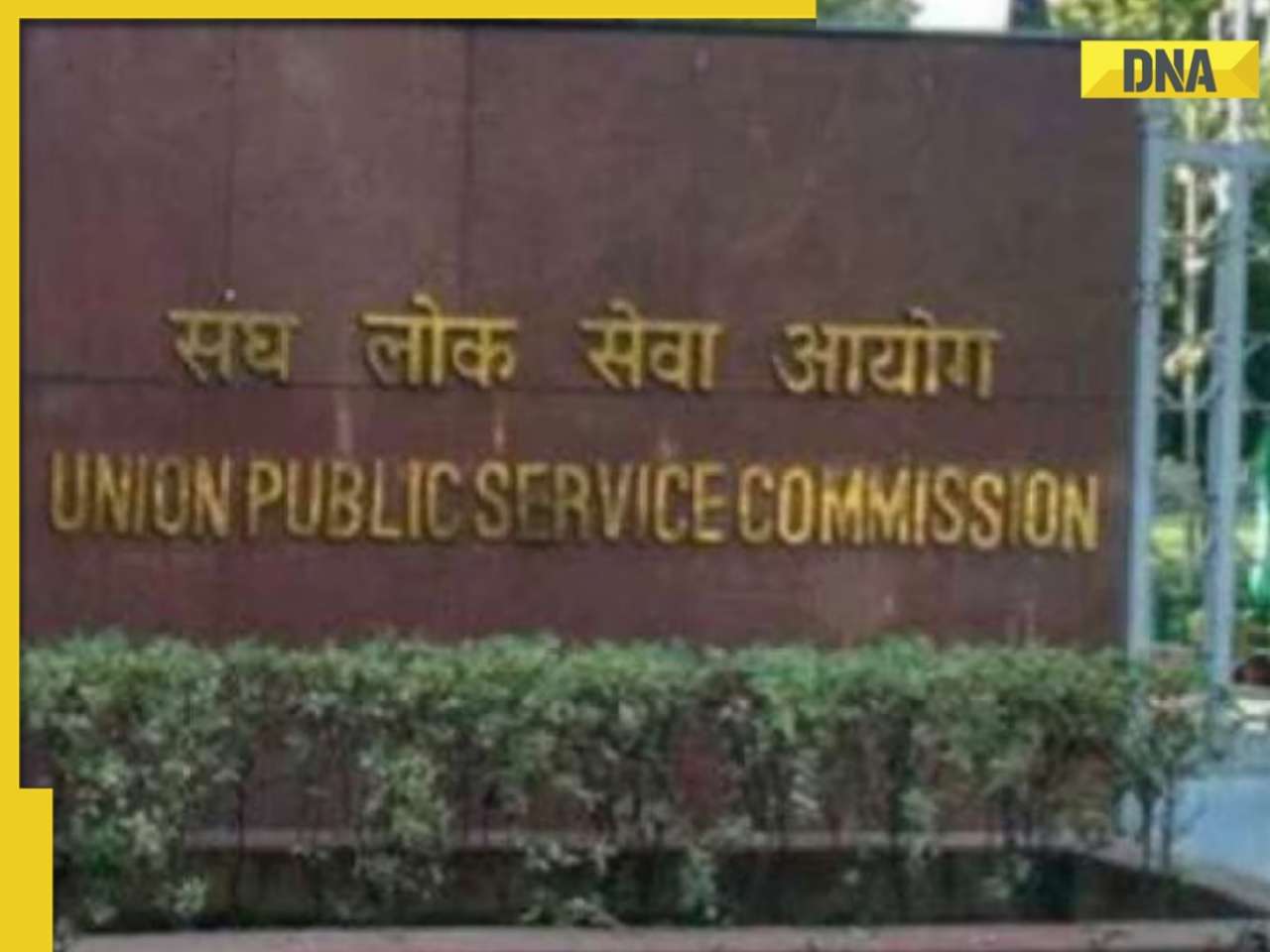This in-depth report examines the complex and often contentious interplay between patents and the pharmaceutical sector, highlighting the challenges and profound implications of this relationship.
The symbiotic relationship between patents and the pharmaceutical industry is pivotal in driving healthcare innovation, influencing market dynamics, and ensuring access to essential medications.
This in-depth report examines the complex and often contentious interplay between patents and the pharmaceutical sector, highlighting the challenges and profound implications of this relationship.
At the core of pharmaceutical innovation is the patent system, which incentivizes research and development by granting inventors exclusive rights for a specified period. Patents act as essential catalysts, driving groundbreaking discoveries, drug formulations, and therapeutic advancements that combat diseases and improve human health.
Role of Patents in Promoting Economic Growth
In developing nations, the protection of intellectual property rights (IPR) fosters innovation and the development of a robust market economy, promoting economic progress.
Here are some ways in which patents impact economic growth:
Encouraging Investment in Research and Development (R&D): A survey by the European Patent Office found that companies with patents spend more on R&D than those without.
This increased R&D spending leads to the development of new technologies and products, contributing to economic expansion.
Positive Impact on GDP:Research by the European Patent Office shows that a 1% increase in patent filings results in a 0.1% rise in GDP.
This indicates a direct correlation between patent activity and economic growth.
Encouraging Competition: Competition among companies generally results in the best pricing, quantities, and quality of goods and services for consumers. Patents prevent the replication and copying of inventions and products, thus supporting industry-wide competition and encouraging ethical business practices.
In 2002, more than 850,000 patent applications were filed in Europe, Japan, and the United States, compared to about 600,000 in 1992. These figures reflect the growing importance of patents in the economy. Several multinational companies have started their R&D processes in India, indirectly boosting the country's economic growth through increased tax payments and employment opportunities for Indian citizens.
Recent years have seen significant improvements in the patent application process, including simplified procedures, expedited examinations for various applicant categories, electronic certificate delivery, and video conferencing facilities.
Similarly, trademark application procedures have been enhanced with automatic application allotment to examiners and automated renewals. These reforms have led to increased filings and grants of both trademarks and patents. Notably, the number of patent applications has risen from 45,444 in 2016-17 to 66,440 in 2021-22.
Similarly, the number of patents granted in India increased from 9,847 in 2016-17 to 30,074 in 2021-22. During this period, the share of resident applicants also rose significantly, from less than 30 percent in 2016-17 to 44.5% in 2021-22.
In 2020, India saw 56,771 patent filings, which is just 4% of the 1.497 million applications filed in China and 9.5% of the 597,000 applications filed in the United States during the same year.
In the same year, India granted 26,361 patents, significantly fewer than the 530,000 granted in China and the 350,000 granted in the United States.
|
Year
|
Patent Applications in India *thousands
|
Patents Granted in India *thousands
|
Patent Applications in China ** million
|
Patents Granted in China ** million
|
Patent Applications in the US ** million
|
Patents Granted in the US ** million
|
|
2016-17
|
45444
|
9847
|
1.3
|
0.404
|
0.606
|
0.303051
|
|
2020
|
56771
|
26361
|
1.5
|
0.53
|
0.597
|
0.35
|
|
2021-22
|
66440
|
30074
|
1.59
|
0.696
|
0.651
|
0.374006
|
Additionally, the average time to dispose of a patent application in India is about 58 months, compared to roughly 20 months in China and 23 months in the United States. This report’s analysis indicates that the primary cause of this delay is a shortage of manpower in the Indian patent office.Apart from the shortage of manpower, the paper identifies certain other procedural issues inthe patent application process.
Addressing Procedural Issues and Potential Solutions
Lack of Fixed Timelines:
There are no fixed timelines for various steps, such as filing an opposition against a patent application, leading to delays.
Cumbersome Compliance Requirements:
Submitting information on the processing of foreign patent applications is still required.
Potential solutions include:
- Introducing Utility Model Patents: Simplifying the process through utility model patents
- Outsourcing Administrative Tasks: Delegating administrative parts of the patent process
Enhancing the Portal and Filing System: Improving the overall patent filing and portal systems
In India, holding patents is vital for fostering innovation and protecting intellectual property, enabling companies to secure exclusive rights to their inventions. When it comes to chemical or API manufacturing company, it takes a significant factor. According to a recent report by IPR (Intellectual Property Rights) news the company’s impressive portfolio includes 9patents, underscoring its role as a leader in the industry.
As we look into the API manufacturing companies as a patent holder, West Bengal Chemical Industries Limited (WBCIL),Kolkata has grabbed the spotlight. It has emerged as a significant player in the API manufacturing sector. This company has been recently highlighted as one of the top patent holders in India. Established with a vision to advance API manufacturing, West Bengal Chemical Industries Limited has carved out a niche for itself through innovation and a robust commitment to quality.
The cornerstone of this API manufacturing company’s accomplishment lies in its research and innovative capabilities, as evidenced by its 9patents. These patents cover a range of breakthroughs in API manufacturing processes, reflecting the company’s commitment to advancing pharmaceutical science. Each patent represents a significant milestone, marking West Bengal Chemical Industries Limited’s contributions to making drug production more efficient, cost-effective, and sustainable.
The latest patent is Ferric Maltol, Improved Ferric Carboxymaltose with Less Side-Effects Obtained Cost Effectively and the other 7 patents are Ferric Carboxymaltos, Iron-Isomaltoside, Iron (III) Coordination Complex, Ferric Derisomaltose, Ferric Citrate, SucroferricOxyhydroxide, and Enclomiphene Citrate.
This API pharma company was also invited to the 75th Republic Day parade, highlighting the company's contributions to India's pharmaceutical industry and its role in advancing the nation's intellectual property landscape.
As India continues to celebrate its innovators, the achievements of companies like West Bengal Chemical Industries Limited (WBCIL)serve as a beacon of progress, inspiring future generations to pursue excellence in science and technology.
As West Bengal Chemical Industries Limited (WBCIL)continues to lead the charge in innovation, it remains dedicated to driving sustainable growth and technological self-sufficiency, in alignment with India's vision of 'Aatmanirbhar Bharat'.
West Bengal Chemical Industries Limited (WBCIL)is now a global exporter of various APIs, having transformed over the past 62 years from a modest setup into a leading player in the industry. This remarkable journey has been fueled by the adoption of cutting-edge technology and the cultivation of a culture of rigorous research and development.
Over the years, this API pharma company has built a reputation for producing high-quality APIs including chelated minerals, DC granules, animal nutrients, and bio-active products. They have over 150 API products, each meeting stringent regulatory standards, reflecting the company's dedication to excellence and safety.
West Bengal Chemical Industries Limited’s success in securing patents is a testament to its strong emphasis on research and development (R&D). This company invests significantly in its R&D department, fostering a culture of innovation. Its state-of-the-art laboratories are equipped with the latest technology, and its team of experienced scientists continuously works on developing new methods and compounds. This focus on R&D not only helps in securing patents but also ensures that WBCIL remains at the forefront of the pharmaceutical industry.Its official website www.wbcil.com brings a lot of news regarding research and development.
As India continues to implement reforms and address existing challenges, the country's patent system will play a crucial role in driving innovation, protecting intellectual property, and ensuring the availability of high-quality and affordable medications. This progress aligns with India's vision of 'Aatmanirbhar Bharat,' promoting self-sufficiency and sustainable growth in the pharmaceutical industry and beyond.
The DNA app is now available for download on the Google Play Store. Please download the app and share your feedback with us.
![submenu-img]() Ex-India star takes a dig at Riyan Parag over his bizzare T20 World Cup remark, says, 'First be patriotic, then…'
Ex-India star takes a dig at Riyan Parag over his bizzare T20 World Cup remark, says, 'First be patriotic, then…'![submenu-img]() Kakuda trailer: Sonakshi Sinha, Riteish Deshmukh, Saqib Saleem team up to get rid of a ghostly curse in spooky comedy
Kakuda trailer: Sonakshi Sinha, Riteish Deshmukh, Saqib Saleem team up to get rid of a ghostly curse in spooky comedy![submenu-img]() From Launch to Leadership: Logistics Expert Streamlines Operations Across the Americas
From Launch to Leadership: Logistics Expert Streamlines Operations Across the Americas![submenu-img]() ISRO’s Aditya-L1 completes first halo orbit around Sun-Earth L1 point in….
ISRO’s Aditya-L1 completes first halo orbit around Sun-Earth L1 point in….![submenu-img]() Amazon Prime Day sale date announced; check details
Amazon Prime Day sale date announced; check details![submenu-img]() Meet woman who cleared UPSC exam at 21, bagged AIR 13 but didn't become IAS due to...
Meet woman who cleared UPSC exam at 21, bagged AIR 13 but didn't become IAS due to...![submenu-img]() Meet daughter of vegetable vendor whose mother mortgaged gold for her studies, failed to crack UPSC exam 4 times then...
Meet daughter of vegetable vendor whose mother mortgaged gold for her studies, failed to crack UPSC exam 4 times then...![submenu-img]() UPSC Prelims Result 2024 declared at upsc.gov.in; get direct link here
UPSC Prelims Result 2024 declared at upsc.gov.in; get direct link here![submenu-img]() Meet woman who studied six hours daily, cracked UPSC exam at 23 to become IAS officer, currently posted at...
Meet woman who studied six hours daily, cracked UPSC exam at 23 to become IAS officer, currently posted at...![submenu-img]() Meet man, hired for record-breaking package, not from IIT, IIM, his salary is...
Meet man, hired for record-breaking package, not from IIT, IIM, his salary is...![submenu-img]() DNA Verified: Did Kangana Ranaut party with gangster Abu Salem? Actress reveals who's with her in viral photo
DNA Verified: Did Kangana Ranaut party with gangster Abu Salem? Actress reveals who's with her in viral photo![submenu-img]() DNA Verified: New Delhi Railway Station to be closed for 4 years? Know the truth here
DNA Verified: New Delhi Railway Station to be closed for 4 years? Know the truth here![submenu-img]() DNA Verified: Did RSS chief Mohan Bhagwat praise Congress during Lok Sabha Elections 2024? Know the truth here
DNA Verified: Did RSS chief Mohan Bhagwat praise Congress during Lok Sabha Elections 2024? Know the truth here![submenu-img]() DNA Verified: Is CAA an anti-Muslim law? Centre terms news report as 'misleading'
DNA Verified: Is CAA an anti-Muslim law? Centre terms news report as 'misleading'![submenu-img]() DNA Verified: Lok Sabha Elections 2024 to be held on April 19? Know truth behind viral message
DNA Verified: Lok Sabha Elections 2024 to be held on April 19? Know truth behind viral message![submenu-img]() In pics: India beat South Africa by 7 runs to lift second T20 World Cup title
In pics: India beat South Africa by 7 runs to lift second T20 World Cup title![submenu-img]() Alia Bhatt mesmerises in gown, Ranbir Kapoor looks classy in tuxedo in latest romantic photos, fans say 'couple goals'
Alia Bhatt mesmerises in gown, Ranbir Kapoor looks classy in tuxedo in latest romantic photos, fans say 'couple goals'![submenu-img]() Newlyweds Sonakshi Sinha-Zaheer Iqbal pose candidly with paps; Anil Kapoor, Kajol, Huma Qureshi attend wedding reception
Newlyweds Sonakshi Sinha-Zaheer Iqbal pose candidly with paps; Anil Kapoor, Kajol, Huma Qureshi attend wedding reception![submenu-img]() Meet Lovekesh Kataria: Elvish Yadav's close friend, Bigg Boss OTT 3 contestant who lied to father, spent his fees on...
Meet Lovekesh Kataria: Elvish Yadav's close friend, Bigg Boss OTT 3 contestant who lied to father, spent his fees on...![submenu-img]() From Highway to Chandu Champion: 5 underrated gems from Sajid Nadiadwala
From Highway to Chandu Champion: 5 underrated gems from Sajid Nadiadwala![submenu-img]() Lok Sabha Speaker's Election: What does the Constitution say?
Lok Sabha Speaker's Election: What does the Constitution say?![submenu-img]() Explained: Why is Kerala demanding to change its name to Keralam?
Explained: Why is Kerala demanding to change its name to Keralam?![submenu-img]() DNA Explainer: What is Kafala system that is prevalent in gulf countries? Why is it considered extremely brutal?
DNA Explainer: What is Kafala system that is prevalent in gulf countries? Why is it considered extremely brutal? ![submenu-img]() Lok Sabha Elections 2024: What are exit polls? When and how are they conducted?
Lok Sabha Elections 2024: What are exit polls? When and how are they conducted?![submenu-img]() DNA Explainer: Why was Iranian president Ebrahim Raisi seen as possible successor to Ayatollah Khamenei?
DNA Explainer: Why was Iranian president Ebrahim Raisi seen as possible successor to Ayatollah Khamenei?![submenu-img]() Kakuda trailer: Sonakshi Sinha, Riteish Deshmukh, Saqib Saleem team up to get rid of a ghostly curse in spooky comedy
Kakuda trailer: Sonakshi Sinha, Riteish Deshmukh, Saqib Saleem team up to get rid of a ghostly curse in spooky comedy![submenu-img]() Divya Bharti shot for few days for this film before her death, Aishwarya, Sridevi rejected it, movie became hit after...
Divya Bharti shot for few days for this film before her death, Aishwarya, Sridevi rejected it, movie became hit after...![submenu-img]() Tahira Kashyap doesn't want Sharmajee Ki Beti to be called women-oriented: 'You make cinema for everyone' | Exclusive
Tahira Kashyap doesn't want Sharmajee Ki Beti to be called women-oriented: 'You make cinema for everyone' | Exclusive![submenu-img]() Anurag Basu reveals why he is jealous of Rajkumar Hirani: 'He has flexed his...'
Anurag Basu reveals why he is jealous of Rajkumar Hirani: 'He has flexed his...'![submenu-img]() Does Disha Patani's new 'PD' tattoo confirm she is dating Kalki co-star Prabhas? Know real story behind ink | Exclusive
Does Disha Patani's new 'PD' tattoo confirm she is dating Kalki co-star Prabhas? Know real story behind ink | Exclusive![submenu-img]() Amazon Prime Day sale date announced; check details
Amazon Prime Day sale date announced; check details![submenu-img]() Gold mangalsutras, silver rings and...: Mukesh Ambani, Nita Ambani’s gifts to 50 couples at mass wedding; watch video
Gold mangalsutras, silver rings and...: Mukesh Ambani, Nita Ambani’s gifts to 50 couples at mass wedding; watch video![submenu-img]() Watch: Mukesh Ambani, Nita, Isha, Akash attend mass wedding ahead of Anant and Radhika Merchant's marriage
Watch: Mukesh Ambani, Nita, Isha, Akash attend mass wedding ahead of Anant and Radhika Merchant's marriage![submenu-img]() This is why Albert Einstein dropped out of school
This is why Albert Einstein dropped out of school![submenu-img]() Watch: Rahul Dravid’s emotional farewell speech in dressing room, thanks Rohit Sharma for November…
Watch: Rahul Dravid’s emotional farewell speech in dressing room, thanks Rohit Sharma for November…







































)


















)
)
)
)
)
)